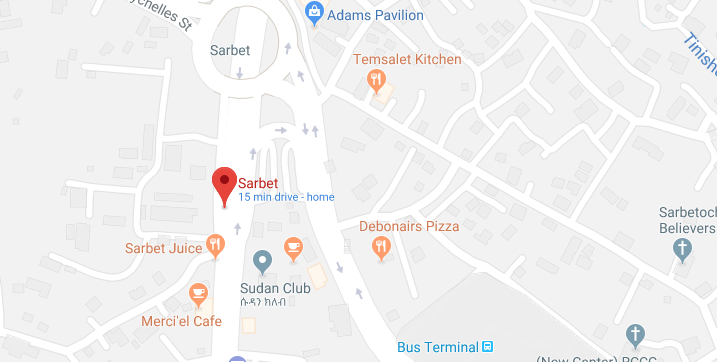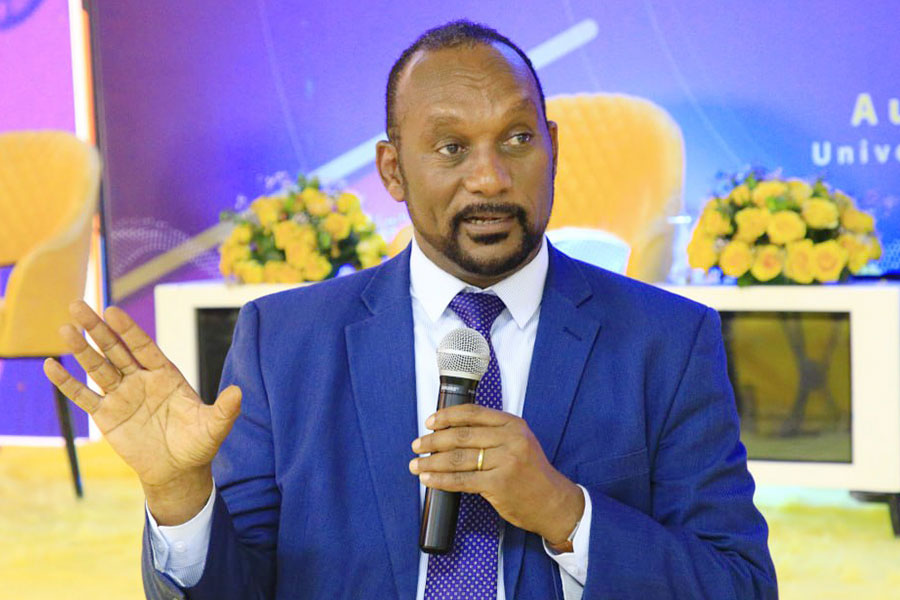
Radar | Sep 27,2025
As the Addis Abeba City Administration takes a leap to early childhood development programs, upcoming real estate and condominium houses are compelled to include daycares in their design while the existing ones are required to make room for accommodation.
The project early childhood development program which makes childcare institutions around home areas mandatory is closely monitored by the Mayor's Office Strategic Programs Bureau officials partnering with the city Women Children & Social Affairs, Public Service, Finance, Transport and Culture Arts & Tourism bureaus.
Although he did not disclose the amount, a significant financial investment was put forth to map out the program, according to Eshetayehu Kinfu (PhD), head of the strategic programs bureau at the Mayor's Office.
Meanwhile, the Women Children & Social Affairs Bureau took on the task of pushing up to 1,000 public offices to preserve room for childcare services.
For two years Eshetayehu and his team tried to identify the specific areas that should be addressed for the overall development of children under the age of six, will hold meetings at condominium sites with hopes to garner constructive feedback from residents.
"The plan is to make childcare accessible at a reasonable price," he told Fortune.
Over 600 condominium sites with residents that were relocated for development projects foresee daycare centres and playgrounds with the regulations getting the green light from the City Cabinet in mid-March. The City Administration built a daycare at the Ayat 49 condominium site and handed it over to the community in June as a pilot program.
The Addis Abeba Food Medicine & Health Care Administration & Control Authority previously used to inspect close to 130 licensed daycare centres four times a year through its Wereda branches. However, with the new restructuring that shut down several branches, the checkup duration was cut by half and transferred to the central office.
According to Getachew Abebe, head of the licensing directorate, although the requirements are compounded to educational background and facility equipment, the inspection serves the best interest of the children and keeps them from being exposed to actual harm.
Sebelework Assefa is one of the administrative staff at the Mekanisa condominium site which houses 660 residents. She is ecstatic about the plan to begin a daycare facility with hopes that it will allow mothers to be able to go back to work.
Seblework recalls the homeowners' committee planned to offer the service through a licensed facility with a relatively lower offer a few years ago. However, the construction was put off by the Wereda administrators for lack of proper citation.
"They failed to understand the point," she said.
Although their idea was discarded back then, Seblework is pleased to witness it is revived again. Any approach that may provide parents relief while going back to work is endorsed, she said.
While the owners of private daycare facilities such as Happy Daycare echo the sentiment, they argue the business requires financial fluidity and constant regulation. The monthly rent for a villa house costs 60,000 Br while installations and operational costs round up to over half a billion Birr.
Children less than a year old are taken care of with a 5,500 Br monthly fee while the price decreases by 500 Br as they get older.
The owner Mahlet Wondimu decided to take it on as a business after experiencing unfortunate circumstances with her own child when she planned to go back to work after giving birth. Contrary to her expectations of flooding customers, the daycare only received 10 children in the past two months.
"I hope the new year brings better opportunities," she said.
Although the advantage of affordable daycares cannot be denied by working parents, experts like Mohammed Abdo, a social work instructor at Jimma University, indicate the benefits extend to the upbringing of children who adapt to the behaviour of their surroundings.
"It's better for children to be surrounded by people the same age," he said.
However, the lack of inspection, inadequate training of caretakers and the unventilated room he observed upon research have him worried. He urges authorities to double up on the uninformed inspection and enforce regulations in all sincerity.
PUBLISHED ON
Aug 26,2023 [ VOL
24 , NO
1217]

Radar | Sep 27,2025

Fortune News | Sep 28,2019

Radar | Jul 13,2020

Radar | Apr 03,2023

Radar | Apr 12,2020

Radar | Jan 09,2021

Fortune News | Mar 21,2020

Fortune News | Sep 21,2025

Radar | Apr 30,2022

Life Matters | Aug 27,2022

Dec 22 , 2024 . By TIZITA SHEWAFERAW
Charged with transforming colossal state-owned enterprises into modern and competitiv...

Aug 18 , 2024 . By AKSAH ITALO
Although predictable Yonas Zerihun's job in the ride-hailing service is not immune to...

Jul 28 , 2024 . By TIZITA SHEWAFERAW
Unhabitual, perhaps too many, Samuel Gebreyohannes, 38, used to occasionally enjoy a couple of beers at breakfast. However, he recently swit...

Jul 13 , 2024 . By AKSAH ITALO
Investors who rely on tractors, trucks, and field vehicles for commuting, transporting commodities, and f...

Oct 18 , 2025
The political establishment, notably the ruling party and its top brass, has become p...

Oct 11 , 2025
Ladislas Farago, a roving Associated Press (AP) correspondent, arrived in Ethiopia in...

Oct 4 , 2025
Eyob Tekalegn (PhD) had been in the Governor's chair for only weeks when, on Septembe...

Sep 27 , 2025
Four years into an experiment with “shock therapy” in education, the national moo...